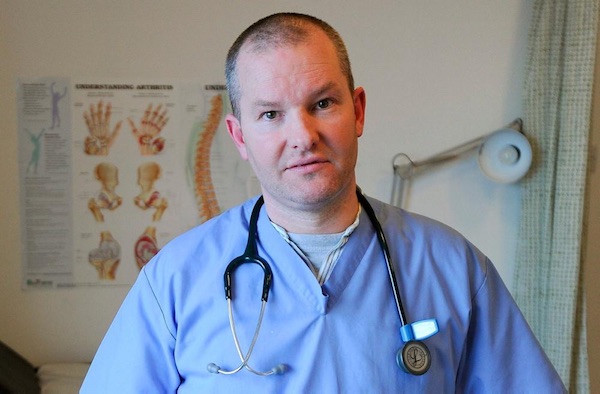
There have been calls for a criminal investigation into the failure to protect residents of Irish nursing and care homes from the coronavirus disease after a prominent County Dublin doctor resigned from the Irish Medical Council over the government’s mishandling of the crisis.
Dr Marcus de Brun was appointed to the board of the oversight body two years ago by health minister Simon Harris. The GP has now stepped down over the government’s failures in the crisis, especially in care homes.
“The present management of this crisis represents the biggest political blunders in the history of the Irish State,” he wrote.
The total number of deaths in the 26 County state reached four figures on Friday, with 1,014 dead, including the addition of 185 previously uncounted deaths. Over 70% of all deaths have now taken place in residential care homes.
“Unquestionably the most vulnerable cohort of patients in Ireland are those residents of nursing homes,” said Dr de Brun. “This fact should have been entirely obvious to all involved in the management of the crisis.”
The doctor added that he believed the elderly people were not made a priority in tackling the pandemic.
“It beggar’s belief, and remains an evolving tragedy, that these vulnerable people were not considered as the first priority for the state, rather than being the last to be considered,” he wrote.
The statement refelcts comments by government ministers which confirmed that nursing homes were considered to be a low priority. Irish Chief Medical Officer Dr Tony Holohan has freely admitted that the state’s efforts were directed on managing the disease within nursing homes, rather than keeping them free of the virus.
“To build a strategy around preventing transmission of this infection into nursing homes and other environments, would not be realistic. It wouldn’t make sense,” he declared.
Owners of some nursing homes recalled that last month, they were ordered to reopen their facilities to visitors, after initially rejecting official advice to keep them open.
Most nursing homes, including private and public facilities, across Ireland, have now suffered outbreaks of the coronavirus. Large numbers of deaths in homes around the country have taken place in areas where there are hospitals with low occupancy and underused intensive care units.
It is understood that many care home residents with symptoms of the disease have been given life-ending palliative drugs instead of hospital treatment, raising legal and ethical questions.
While similar reports have emerged from Britain and other European countries, Ireland stands out for its uniquely high ratio of care home deaths to hospital deaths.
Aontú leader Peadar Tóibín TD called on the Taoiseach to commit to an investigation into the crisis in the sector. Speaking in the Dublin parliament at Leaders’ questions, Mr Tóibín spoke of a “timeline of inaction” which he said “beggars belief”.
Sinn Féin leader Mary Lou McDonald also urged hospitals and their consultants to deal with the nursing homes in their locality. She also called for spare capacity in private hospitals -- contracted at considerable expense to the state -- to be used for patients of nursing homes and for efforts to be made to tackle staff shortages in residential homes.
“There are huge capacity issues impacting the ability of nursing homes to manage the spread of the virus,” she warned. “The lack of urgency needs to be replaced with action and decisiveness.”
![[Irish Republican News]](https://republican-news.org/graphics/title_gifs/rn.gif)
![[Irish Republican News]](https://republican-news.org/graphics/title_gifs/harp.gif)

